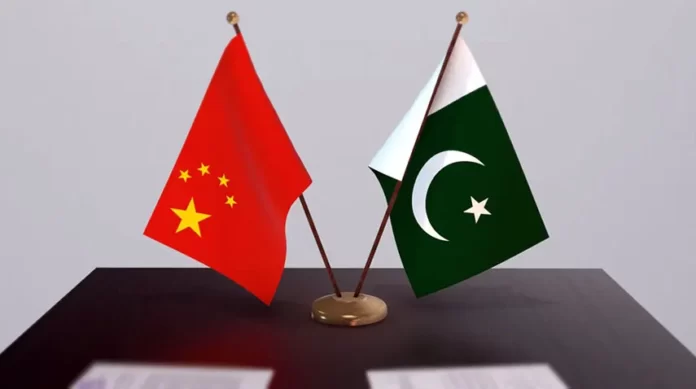The Pakistan Embassy in China will hold a business networking event in Beijing by the end of next month to connect Pakistani and Chinese entrepreneurs.
The initiative is timed with the upcoming meeting of heads of government of Shanghai Cooperation Organization (SCO) member states. Around 100 to 150 Pakistani business leaders and company representatives are expected to visit China, where they will meet with nearly 300 Chinese companies.
Commercial Counselor Ghulam Qadir said the meetings will be scheduled in advance so participants can prepare and engage meaningfully. He said that this approach is expected to produce better results than meeting for the first time on the day of the event.
A ministerial committee has been formed to oversee the initiative. It is led by Federal Minister for Planning, Development and Reforms Ahsan Iqbal. Federal Commerce Minister Jam Kamal Khan is the convener, while Special Assistant to the Prime Minister for Industries and Production Haroon Akhtar Khan serves as co-convener.
Seven priority sectors have been identified to attract Chinese investment and increase bilateral trade: electric vehicles and battery storage, solar panel manufacturing, steel, copper, food and agriculture, information and communication technology, and chemicals and petrochemicals.
Qadir said that Pakistan’s new EV policy aims to cut the fuel import bill and attract investments from companies such as BYD, Geely, and Chery. He added that growth in EV production, battery manufacturing, and charging infrastructure will support this goal.
Pakistan also hopes to localize solar panel production. The country spends over $2 billion a year on imports. Qadir said that local manufacturing will reduce this cost and create jobs, as well as support exports due to strong domestic demand.
He said Pakistan wants to introduce green steel technology from China. Steel is required for EVs, construction, and several other industries. Pakistan has sufficient land and demand to support such production.
Qadir said the country exports $1 billion in raw copper annually and aims to process and refine copper locally. With the right investment, export value could rise to $4–5 billion. He said partnerships with Chinese firms are key to reaching this goal.
Food and agriculture have also been prioritized. The government wants to improve crop yields, livestock, and food processing. This would allow Pakistan to export surplus products to meet growing Chinese demand.
In the ICT sector, Qadir said Pakistan has a skilled and low-cost workforce, while China offers a large market. He said this creates potential for strong collaboration.
He added that joint ventures with Chinese companies in the petrochemical sector could help reduce oil and fuel imports, transfer technology, and create export opportunities.
Qadir said partnerships in these sectors can bring investment, technology transfer, job creation, and increased local manufacturing.




